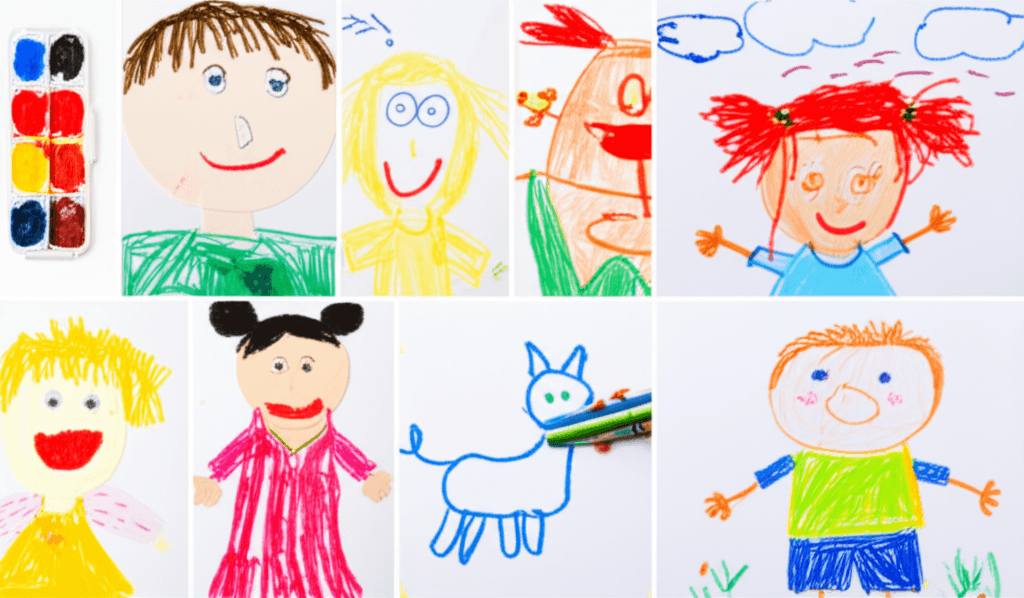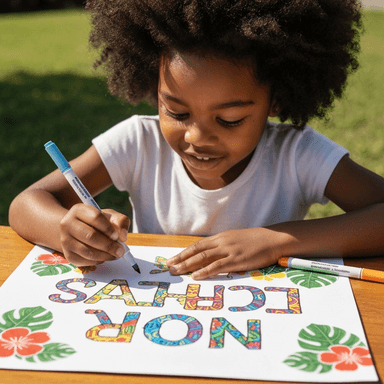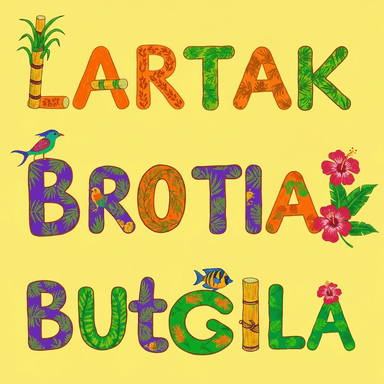Children explore their own identities, including their names, physical characteristics, likes and dislikes, and what makes them special and unique.

Daily themes for Week 1
What makes my name special?
Introduce the theme "All About Me." Discuss how everyone has a special name. Read the book "Chrysanthemum" by Kevin Henkes or a similar book about names.
Teacher Tip: As you read, pause to ask children how Chrysanthemum feels at different points in the story. Connect to how children feel about their own names.
Name recognition and writing practice. Children identify their name cards and practice writing their names using various materials (markers, crayons, finger paint, etc.).
Count the letters in each child's name. Create a graph showing how many letters are in each child's name. Identify which names have the most/least letters.
Extension: For advanced students, calculate the average number of letters in the class names, or sort names by first letter and create a bar graph.
Name art: Children decorate their names using various art materials. They can use fingerprints, stickers, or drawings that represent things they like.


Share name art and discuss what makes each name special. Sing a name song that incorporates each child's name.
Reflection Questions:
Children create a personal collage using magazine cutouts, drawings, and photos that represent their interests, family, and favorite things.
Materials:
Magazines, scissors, glue, construction paper, crayons, family photos
Interactive game where children find their names among others, count letters, and identify beginning sounds while learning about name origins.
Materials:
Name cards, magnifying glasses, letter tiles, clipboards
Children demonstrate their special abilities and talents in a supportive classroom setting, building confidence and celebrating diversity.
Materials:
Simple props, music player, "I Can" certificates, camera for documentation
Explore uniqueness through fingerprint art, creating characters and designs while learning that everyone's fingerprints are different and special.
Materials:
Ink pads, paper, fine-tip markers, magnifying glasses, wet wipes